DC solar eclipse 2024 guide: Peak times, watch live and more

Solar eclipse watch with FOX 5's Mike Thomas in Buffalo, NY
The solar eclipse has people excited across the nation! FOX 5's Mike Thomas is in Buffalo, NY — one of the cities that fell in the path of totality!
BETHESDA, Md. (FOX 5 DC) - As the earth spins around its axis, anticipation is mounting in the nation's capital for the celestial spectacle – the highly anticipated "Great North American Eclipse."
While not as rare as a total eclipse, the partial solar eclipse residents in the D.C. region will be able to see, promises to be a mesmerizing display as the moon partially veils the sun's luminous disk.
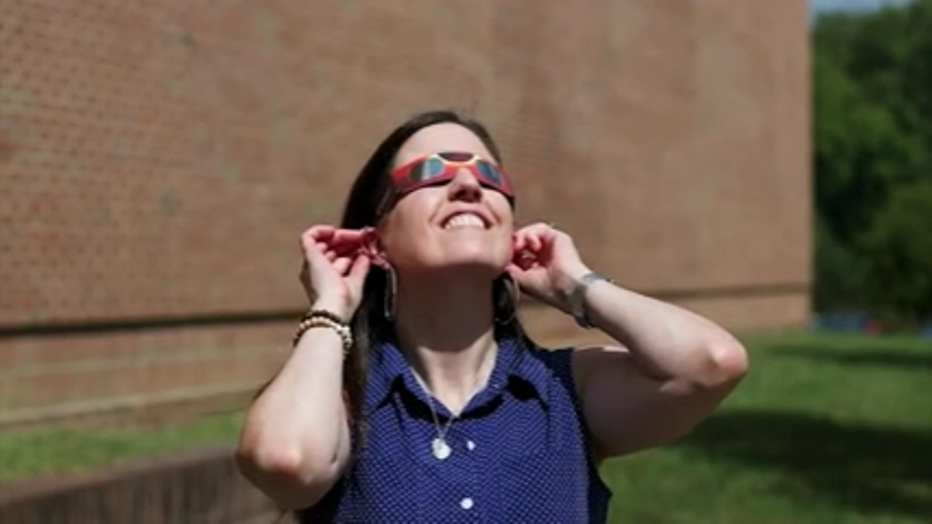
From the expected weather forecast day-of, to fun spots where you can catch a glimpse around the D.C. region and beyond, here's everything you need to know about the event:
What time will it take place in the DC area? What will it look like?
The D.C. area will not see a total eclipse, but a partial one will be visible. The eclipse is expected to cover 87 percent of the sun, with optimal viewing between 2 p.m. and 4:30 p.m. on Monday.
Here’s what it’s expected to look like based on NASA’s Eclipse Explorer interactive map.
2:04 P.M.
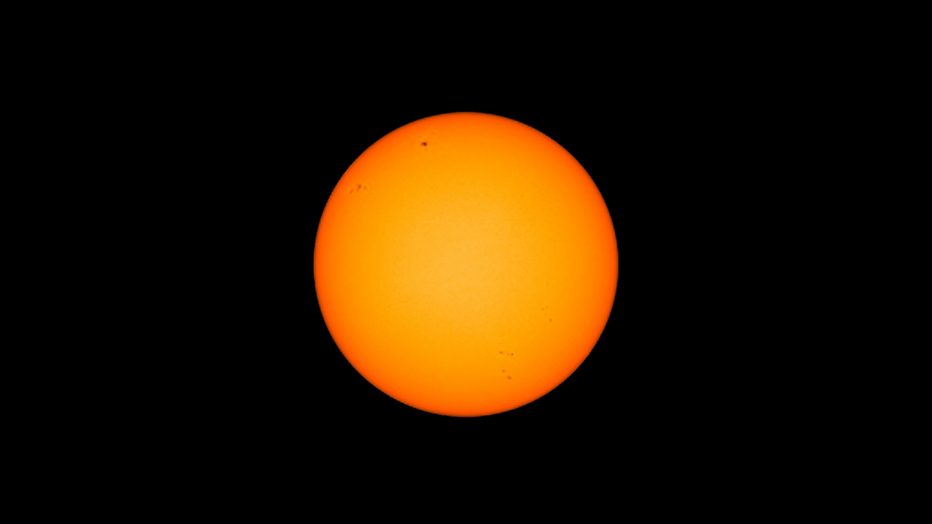
2:20 P.M.

2:45 P.M.
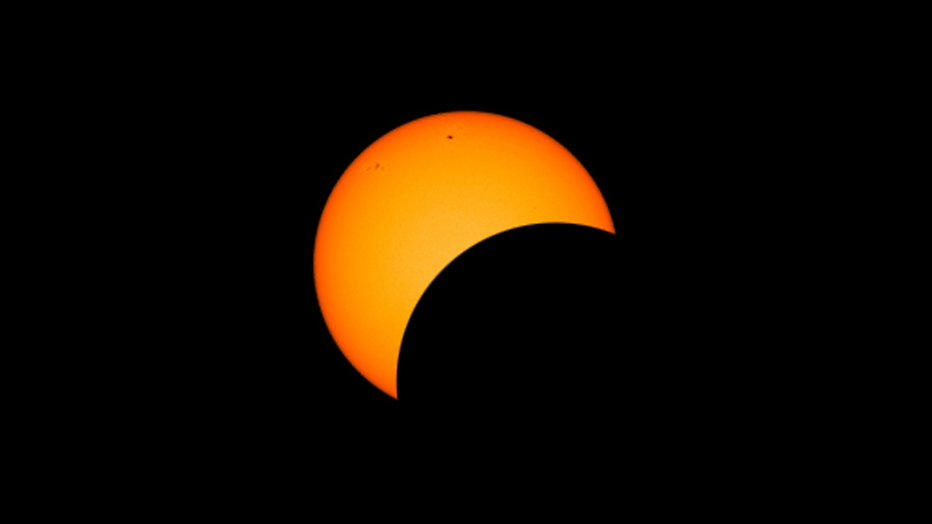
3:05 P.M.
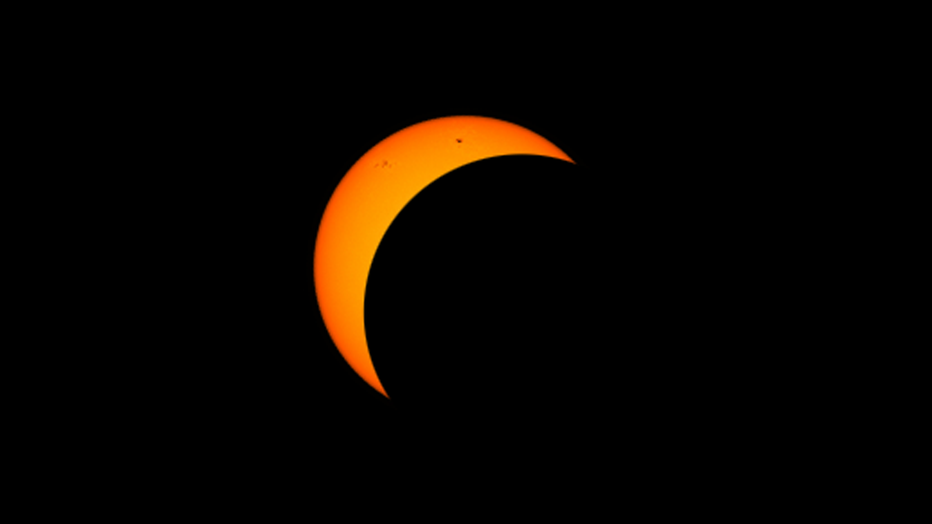
3:20 P.M.
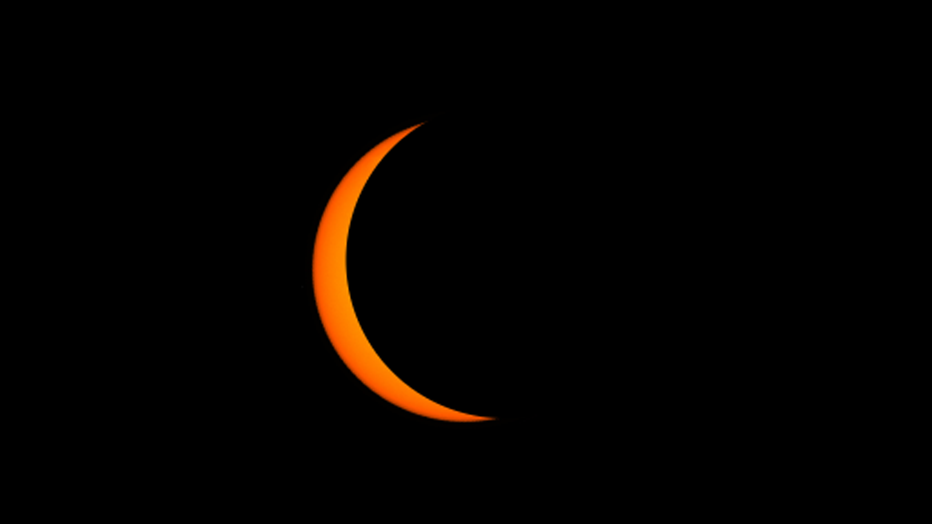
3:45 P.M.
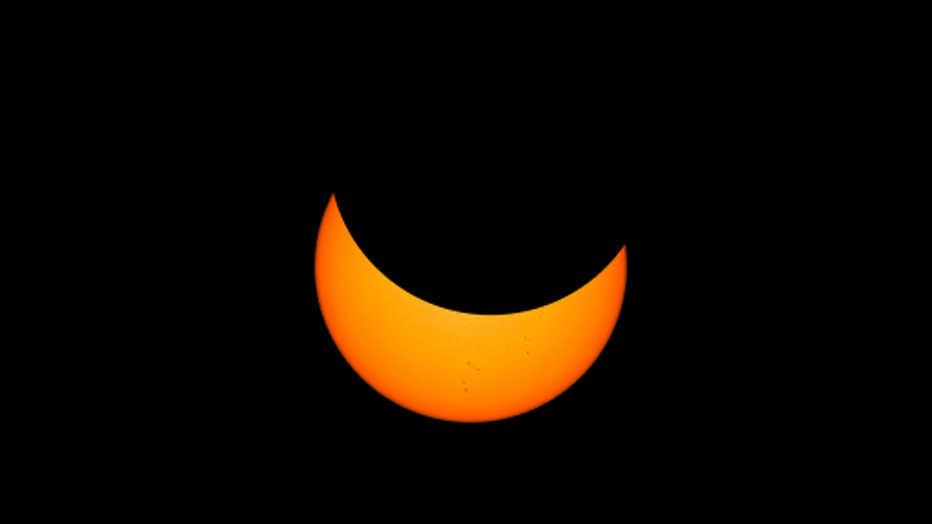
4:05 P.M.
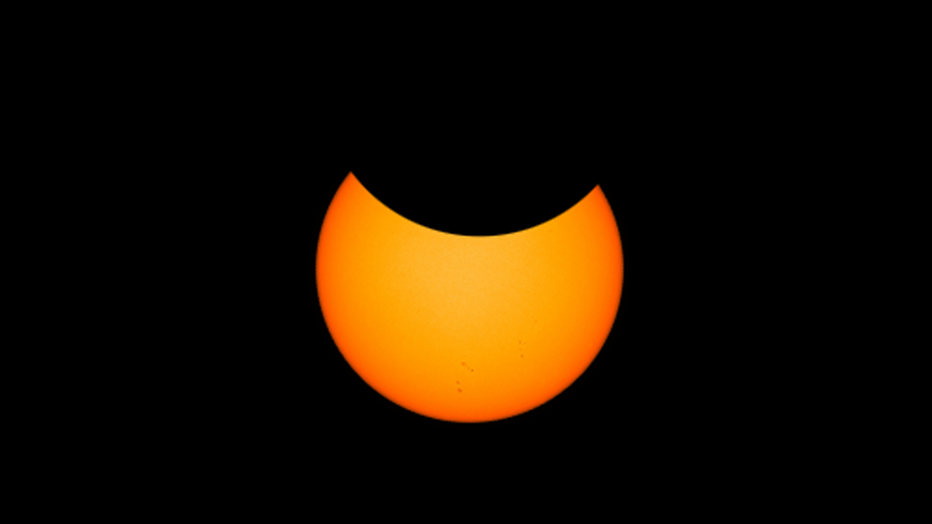
4:20 P.M.
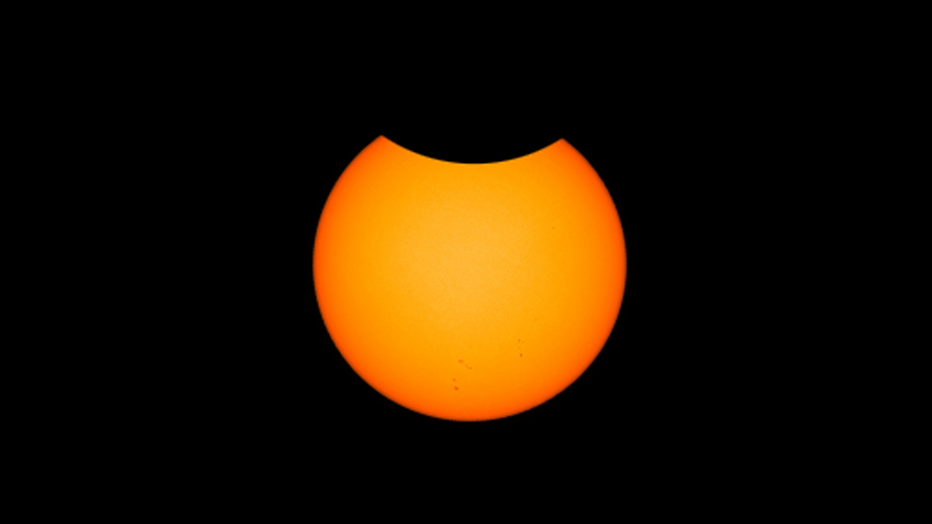
4:35 P.M.
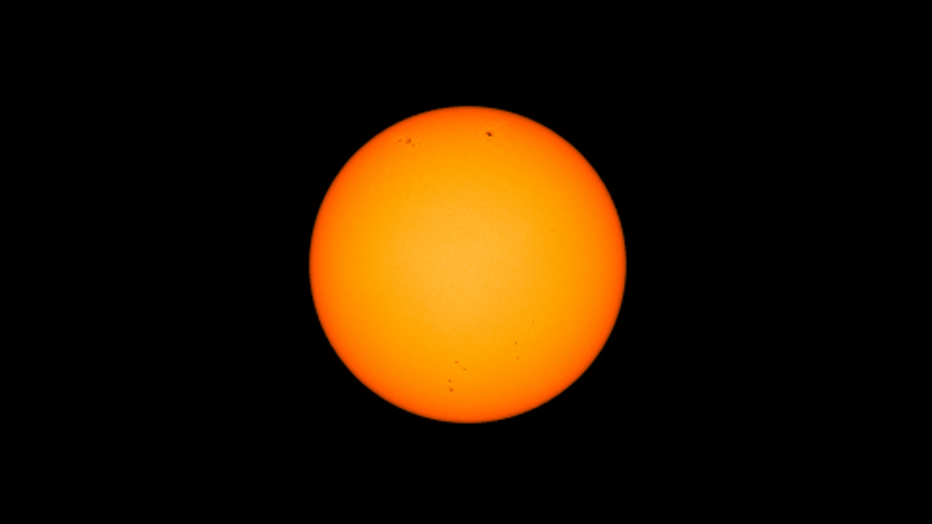
READ MORE: How to get the best view of the solar eclipse
What is a partial solar eclipse?
During a partial solar eclipse, the Moon passes between the sun and earth but the sun, moon, and earth are not perfectly lined up. Only a part of the sun will appear to be covered, giving it a crescent shape.
During a total or annular solar eclipse, people outside the area covered by the moon’s inner shadow see a partial solar eclipse.
Where to see the solar eclipse in DC?
National Mall: The National Air and Space Museum is teaming up with NASA, NOAA, the U.S. National Science Foundation and the National Radio Astronomy Observatory to host a festival on the National Mall on April 8, featuring telescopes and educational activities.
The National Air and Space Museum Udvar-Hazy Center: The Udvar-Hazy Center in Chantilly is holding an event from 2 p.m. to 4 p.m., where you can watch outside the center with safe solar telescopes and projection viewers.

Learning how to photograph the solar eclipse
Marie Joabar and Claire Gardener from Capitol Photography Center joined Good Day DC with some tips on how you can effectively photograph Monday's solar eclipse.
DC Public Library: The DC Public Library is holding film screenings, showing movies like The Martian and Arrival. You can also grab eclipse glasses at libraries around D.C. – while supplies last!
Hotel Zena: Watch the eclipse from Hedy's Rooftop at Hotel Zena in Northwest D.C. There will be music, drinks, food and eclipse viewing, and a little arts and crafts too. Tickets are $15.
Gateway Park: Watch the eclipse from Arlington with the Rosslyn BID from 2 p.m. to 4 p.m. The event will have music, lawn games, and eclipse viewing courtesy of the Northern Virginia Astronomy Club (NOVAC). Plus, free solar glasses!
Turner Farm Observatory: The observatory at Turner Farm in Great Falls is hosting an eclipse-watching event at 1:30 on April 8. Learn about the science behind eclipses what causes them and why they are so locally rare – and how to view the eclipse safely.
Franklin Park Arts Center: Head to Purcellville for hands-on activities from 2:30 p.m. to 5:30 p.m. on April 8. You can expect improv, art, on-theme snacks, shadow puppets, planetarium programs and more!
READ MORE: What schools are planning for the eclipse
What other US states are involved?
The moon’s shadow will first touch Mexico at Mazatlan, then enter the United States through Texas. In between, 15 U.S. states will experience totality, including Texas, Arkansas, Oklahoma, Missouri, Tennessee, Illinois, Kentucky, Indiana, Ohio, Michigan, Pennsylvania, New York, Vermont, New Hampshire, and Maine.
Why should you get in the path of totality?
When it comes to a total solar eclipse, according to experts, getting near the path of totality just doesn’t cut it.
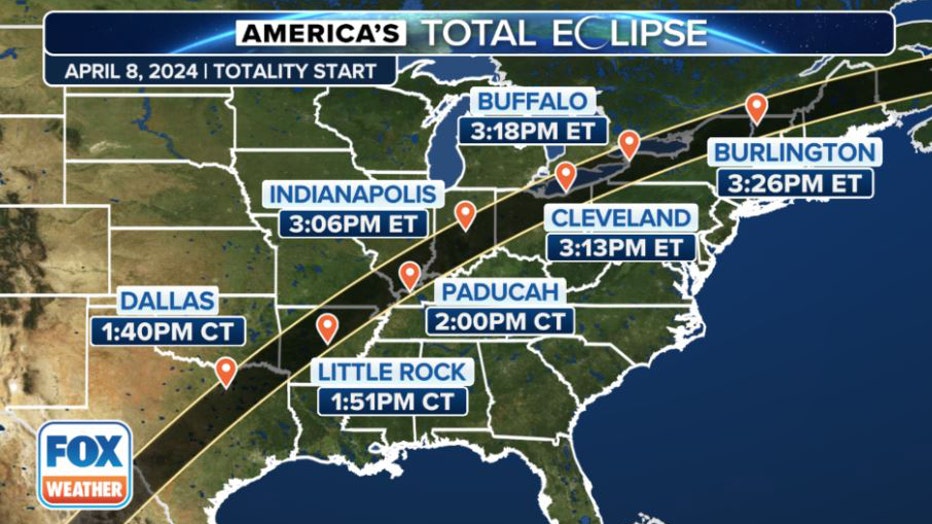
A look at the totality start times during April 8th's total solar eclipse. (FOX Weather)
"If you can get yourself into the path of the moon’s shadow for a total eclipse, it’s definitely worth the effort," Rick Fienberg, project manager of the American Astronomical Society’s Solar Eclipse Task Force, told FOX Weather. "A 99% partial solar eclipse doesn’t get you 99% of the experience of a total solar eclipse — that last 1% is literally the difference between night and day."'
READ MORE: Pets and the solar eclipse: What to know
When the moon hides the sun, the temperature suddenly drops. Stars and planets that are usually only visible at night will emerge. Even animals are tricked into believing it’s nighttime, NASA said. The totality lasts less than 10 minutes.
Click here for 5 cities in the path of totality just a drive away from D.C.
What will the weather be that day?

Tracking the 2024 solar eclipse forecast
FOX 5's Mike Thomas is tracking the forecast ahead of the highly anticipated solar eclipse two weeks from Monday.
The D.C. region should see a mix of sun and clouds on April 8. FOX Weather's forecast shows highs in the low 60s and lows in the upper 40s.
Where to get solar eclipse glasses in DC?
Businesses, public libraries, state parks and more are offering complimentary eclipse glasses in the DC metro area.
The National Air and Space Museum: The museum has a limited amount of free glasses that are available between 12 p.m. - 4 p.m. If the free glasses have all been distributed for the day, or additional glasses are desired, the Smithsonian Store has solar eclipse glasses in select museum stores, while supplies last. Glasses will be sold at the National Air and Space Museum in Washington, DC, and the Steven F. Udvar-Hazy Center in Chantilly, VA.
DC Public Library: While supplies last, DCPL will have the special solar eclipse glasses at District area libraries from April 1 - April 8.
Montgomery County Public Library: Some MCPL libraries will have solar eclipse glasses and activities available. To see if your library is participating click here.
Virginia State Parks: All 42 of Virginia's state parks will have solar eclipse glasses for $1 plus tax at the parks’ visitor centers and gift shops.
Warby Parker: Eyewear retailer Warby Parker will give away two pairs of glasses per family at their stores, starting April 1. They will be available as long as supplies last. You can find their locations here.
Jeni's Ice Cream: The popular ice cream shop Jeni's is also giving away solar eclipse glasses. All online orders of the new Punk Stargonaut ice cream flavors will include four pairs of collectible eclipse glasses through April 3. Jeni's stores will also give away eclipse glasses starting on April 5. Find locations here.
MyEyeDr: The eye care provider MyEyeDr is offering free solar eclipse glasses. There are 438 locations across the country giving away glasses while supplies last. Find a location near you here.
When is the next total solar eclipse?
If you miss it, the next time a total solar eclipse will be visible in the U.S. is Aug. 12, 2045.
LiveNOW and FOX Weather contributed to this report.

